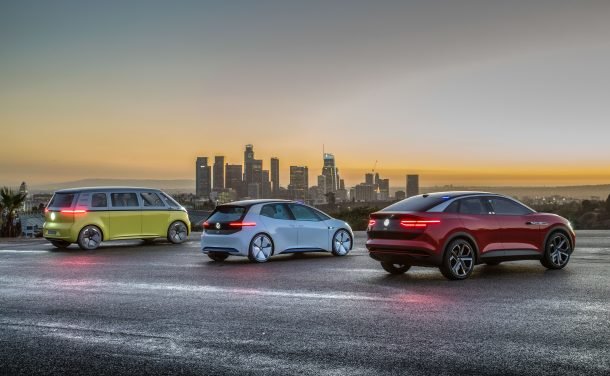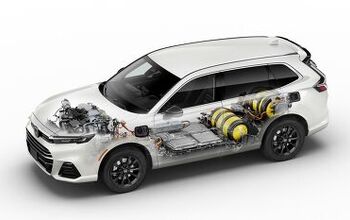Forget Range - Here's Volkswagen's Plan for EV Price Anxiety

Tesla deserves credit for building useable, long-range electric cars, but shares a good deal of the blame for causing the public to associate EV driving with the expenditure of one’s retirement savings. Fledgling technologies carry a steep price in the early days, and other automakers weren’t immune from this reality. A base 2011 Nissan Leaf cost $32,780 before destination and federal incentives and offered 73 miles of range. A 2018 model retails for $29,990 and offers 151 miles.
Volkswagen, currently planning a massive electric vehicle assault on the Western world, knows the price gap between ICE cars and EVs is a major impediment to adoption. That’s why it’s couching its pricing strategy in terms buyers will understand.
An EV is like a diesel.
That’s what Thomas Ulbrich, head of VW’s electric mobility division, wants consumers to know. Now, this lesson might be more familiar to European buyers, and that’s indeed where Ulbrich was speaking during an event late last month.
As it prepares to sink billions into the development and production of MEB-based electric vehicles over the coming years, VW’s strategy is one of approachability. Electric vehicles needn’t be playthings of the rich. That’s why it’s spreading the message that buying an I.D.-badged vehicle will require a markup no different than that of a diesel-powered car.
“And then we are sure we can convince millions, because then it is no longer a price range for special customers,” Ulbrich said.
By 2025, the automaker hopes to sell 3 million EVs per year, scattered over its many brands. The first wave alone, Ulbrich said, will include 10 million MEB-platform vehicles. He didn’t say when this wave is expected to end, however, making that lofty number less than compelling. The first year of production (expected to kick off in late 2019) will see the construction of 100,000 EVs, VW predicts.
But back to that pricing. As Green Car Reports lays out, Ulbrich’s pricing strategy, if true to the letter, would see EV MSRPs positioned 17 to 25 percent higher than a comparative gasoline-powered model. That’s based on U.S. retail pricing of the last VW diesels offered in North America.
Helping VW’s U.S. push is a federal tax credit that VW’s barely used, at least when compared to GM, Tesla, or Nissan. Early electric VW buyers will be able to reap the full $7,500 credit before sales push the incentive into oblivion.
[Image: Volkswagen Group]

More by Steph Willems
Latest Car Reviews
Read moreLatest Product Reviews
Read moreRecent Comments
- Bd2 If I were going to spend $ on a ticking time bomb, it wouldn't be for an LR4 (the least interesting of Land Rovers).
- Spectator Wild to me the US sent like $100B overseas for other peoples wars while we clammer over .1% of that money being used to promote EVs in our country.
- Spectator got a pic of that 27 inch screen? That sounds massive!
- MaintenanceCosts "And with ANY car, always budget for maintenance."The question is whether you have to budget a thousand bucks (or euro) a year, or a quarter of your income.
- FreedMike The NASCAR race was a dandy. That finish…


































Comments
Join the conversation
Well I have a friend who will only buy electrics and diesels because he is a torque addict. He's had a number of TDI's but got out before the scandal broke to go to a couple of Volts before going to an i3. However the plan is to replace the i3 with one of the last 5 series diesels.
Sun Belt candy. They won't work at where I need to get to so I'll keep exulting in the sound of money exploding.